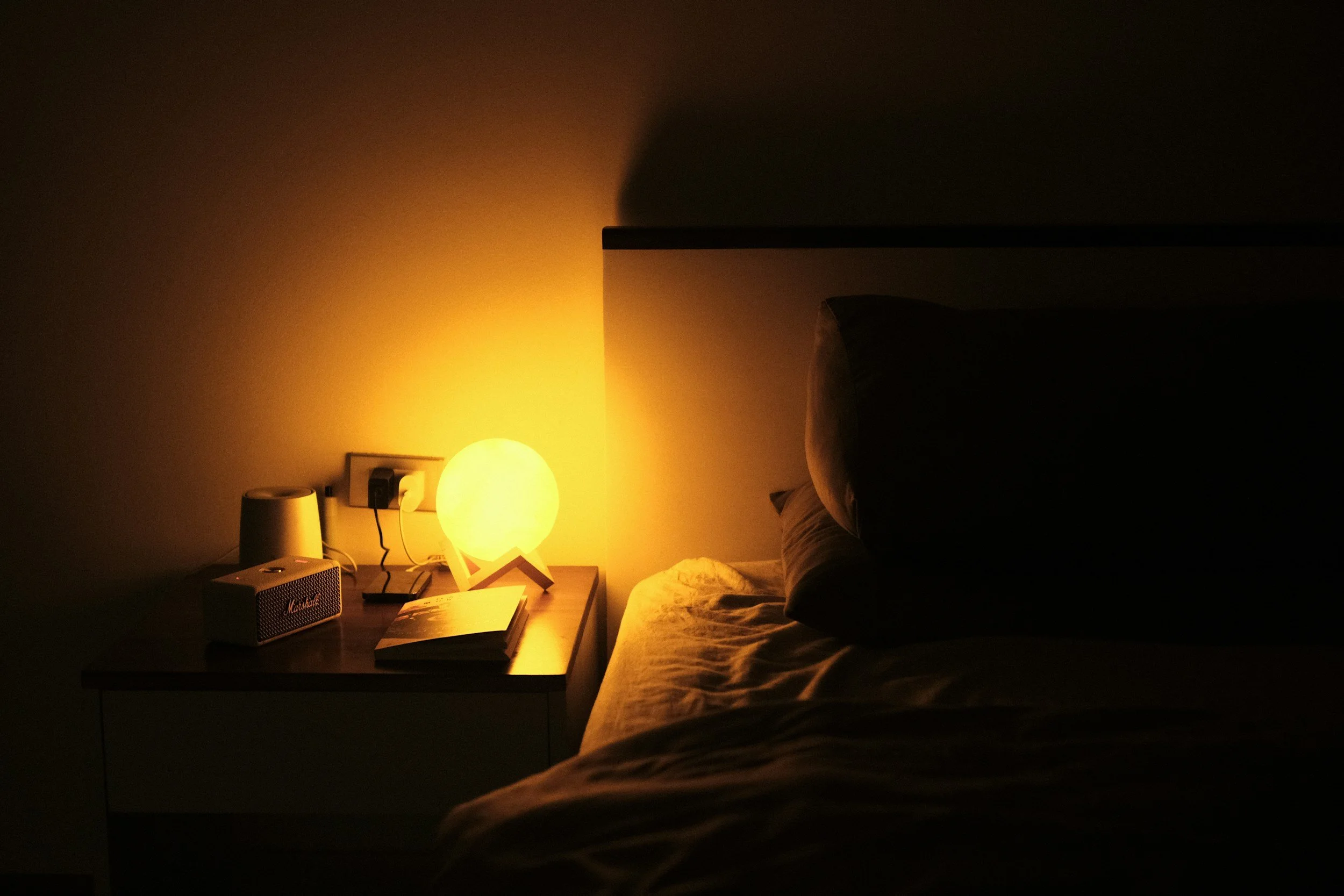How Sleep Affects Mental Health in 2026 (Pennsylvania): Signs, Cycles & Better Rest Tips
📅 Estimated Read Time: 10 min
🆕 Last Updated: February 9, 2026. As early 2026 begins, therapists across Pennsylvania—especially in Allegheny County—continue to report elevated concerns around sleep disruption following holiday schedule changes, winter weather, and the return to work and school routines. Clients in the Pittsburgh region frequently describe difficulty re-establishing consistent sleep patterns after December, making early-year sleep support a growing focus in therapy. Therapists across Pennsylvania report record demand for sleep-focused teletherapy and CBT-I (Cognitive Behavioral Therapy for Insomnia), particularly during winter months when darker days disrupt natural circadian rhythms. In Allegheny County, clinicians note that overcast winter days, hybrid work schedules, and early morning commutes often contribute to delayed sleep onset and increased nighttime anxiety. Therapists also report that school schedules, shift work, and hybrid job demands contribute to irregular sleep patterns during winter.
Getting consistent, restorative sleep is no longer just a wellness goal—it’s a foundation for mental clarity, emotional balance, and resilience. Poor sleep doesn’t just cause fatigue; it intensifies anxiety, impacts mood regulation, and weakens focus. The good news? Even small improvements—like setting a steady bedtime or reducing late-night screen use—can make a measurable difference in how you feel day to day.
🧠 The Link Between Sleep and Mental Health
Sleep affects nearly every aspect of brain function—from emotional processing to stress regulation. When we sleep poorly or not enough:
Anxiety symptoms often intensify
Depressive thoughts become harder to manage
Emotional regulation weakens (more mood swings, irritability)
Decision-making and concentration suffer
In fact, according to the Sleep Foundation, nearly 75% of people with depression report sleep disturbances as a major symptom. The connection is real—and reversible. Pennsylvania clinicians report that students and remote workers show the strongest improvements when sleep routines and light exposure habits are adjusted seasonally. Seasonal adjustments are especially important in regions with frequent overcast days.
🔄 Poor Sleep Can Trigger a Negative Cycle
Not sleeping well can increase anxiety, and anxiety makes it harder to fall asleep—creating a frustrating cycle. The same goes for stress: when your body doesn’t rest, cortisol (your stress hormone) stays high, making you feel wired, anxious, or emotionally drained.
Breaking this cycle starts with small but intentional habit shifts. Consistency in sleep hygiene—like regular bedtimes, screen-free evenings, and mindfulness—can help stop the cycle before it escalates.
This feedback loop often leads to what specialists call “sleep-related emotional dysregulation,” where the brain’s amygdala becomes more reactive to minor stressors. Even small disagreements or work challenges can feel overwhelming when you’re underslept, which reinforces worry and makes relaxation harder at night. Many Pennsylvania therapists see this pattern spike during months with long commutes, school stress cycles, and reduced daylight hours. Clients often describe feeling mentally alert during evening hours despite physical exhaustion. Therapists in Allegheny County report that many clients entering therapy in January and February describe feeling “wired but exhausted,” a pattern strongly linked to circadian disruption and unresolved sleep anxiety.
🧾 Sleep & Mental Health by the Numbers
• 70 million Americans suffer from chronic sleep disorders (CDC) — including thousands in Pennsylvania, where sleep clinics and teletherapy services continue to report record-high demand.
• Adults who sleep fewer than 6 hours are 2.5x more likely to report frequent mental distress
• People with insomnia are 10x more likely to develop depression
In Pennsylvania alone, sleep clinics in Pittsburgh, Erie, and Philadelphia report waitlists for evaluations due to rising insomnia and stress-related sleep disturbances. Rural residents increasingly turn to teletherapy when in-person sleep evaluations are delayed.
🛏️ What to Do When You Can’t Fall Asleep
Try this instead of tossing and turning:
✔ Get out of bed after 20 minutes and do a calm activity (reading, stretching)
✔ Avoid looking at the clock—clock-watching increases anxiety
✔ Use a body scan meditation to relax each part of your body
✔ Keep a notebook by your bed to write down racing thoughts
If sleeplessness persists for several nights in a row, try “cognitive defusion”—a mindfulness technique where you label your thoughts (“I’m having the thought that I can’t sleep”) instead of believing them. This separates the worry from your identity and reduces bedtime anxiety over time. Many clients report that practicing this consistently lowers nighttime panic within a few weeks.
🌿 Natural Supports for Better Sleep (Consult your doctor first)
• Magnesium glycinate or L-theanine
• Chamomile tea or lavender oil
• Melatonin (for short-term use)
• Valerian root supplements
🌙 Tip: Many Pennsylvania therapists recommend pairing supplements with morning sunlight exposure to naturally regulate your circadian rhythm—especially during the darker winter months. For Pennsylvanians, stepping outside within the first 30 minutes of daylight—especially during late fall and winter—helps stabilize melatonin and cortisol cycles. Even brief outdoor exposure on cloudy days can support circadian regulation
❓ What Are the Best Sleep Hygiene Habits in 2026?
Across Pennsylvania, these habits are especially effective for residents navigating school schedules, shift work, and long winters. Shift workers often benefit from anchoring at least one consistent sleep window each day. Here are 7 proven ways to reset your rest routine:
Create a Consistent Sleep Schedule
Go to bed and wake up at the same time every day—even on weekends.Limit Screen Time Before Bed
Blue light from phones and laptops can delay melatonin (your sleep hormone). Try unplugging 1 hour before bed.Avoid Caffeine or Heavy Meals Late at Night
Stimulants and digestion can interfere with deep sleep.Create a Relaxing Wind-Down Routine
Gentle music, stretching, or reading can signal your body it's time to rest.Keep Your Room Cool, Dark & Quiet
Your environment matters. Consider blackout curtains, white noise, or a sleep mask.Limit Naps to 20–30 Minutes
Short naps can refresh you, but long naps may interfere with nighttime rest.Journal or Meditate to Clear Your Mind
If racing thoughts keep you awake, use guided meditations or a simple journal to unload your worries before bed.
💬 How Therapy Can Improve Your Sleep
In Allegheny County, online CBT-I has become a preferred option for clients who face winter travel challenges, shift work, or delayed access to in-person sleep specialists—allowing treatment to begin without waiting weeks for an evaluation. Therapy isn’t just about talking—it’s one of the most effective tools for improving sleep quality and restoring healthy rest cycles. A therapist can help you uncover thought patterns, stress triggers, or daily habits that may be sabotaging your rest. Many therapists use tools like:
CBT-I (Cognitive Behavioral Therapy for Insomnia)
Mindfulness-based stress reduction techniques
Stress/anxiety management strategies
Virtual therapy makes it easier than ever to get help from the comfort of your home—on your schedule. In Pennsylvania, HIPAA-compliant teletherapy platforms now make CBT-I and mindfulness-based counseling accessible across rural and urban communities. This is especially important in rural counties where in-person sleep specialists may be hours away. Virtual CBT-I reduces missed care caused by distance and weather disruptions.
🧭 Signs Your Sleep Might Be Hurting Your Mental Health
Ask yourself:
Do you wake up feeling tired or emotionally off?
Are you more anxious, irritable, or unmotivated after a poor night of sleep?
Do you dread bedtime because your thoughts race or you feel wired?
Has your sleep schedule changed dramatically?
If you answered yes to any of these, it might be time to reevaluate your rest routine—or talk to a licensed therapist who can help. 📌 Therapists report that “sleep anxiety” has become one of the most common reasons adults seek counseling—showing how strongly sleep and mental health are intertwined. Pennsylvania therapists note the highest surge among healthcare workers, college students, and hybrid employees adjusting to irregular schedules. Fatigue-related errors and reduced reaction time are common concerns in safety-sensitive roles.
🔍 Common Causes of Sleep Problems
Chronic stress, digital overload, late-night screen time, and poor work-life balance are top contributors to poor sleep. Many people in 2025 are experiencing “sleep anxiety”—a racing mind and tension that hits right at bedtime. Knowing the causes behind your restless nights can help you take effective action.
🛌 Pennsylvania Sleep Challenges
✔ In cities like Pittsburgh and Harrisburg, long winter commutes and shift work often add to stress and sleep anxiety.
✔ Many college students in Philadelphia and State College struggle with late-night digital use, academic pressure, and irregular schedules that disrupt healthy sleep patterns.
✔ For rural Pennsylvanians, limited access to in-person sleep specialists makes secure teletherapy and CBT-I (Cognitive Behavioral Therapy for Insomnia) especially valuable options.
✔ In northeastern Pennsylvania, winter storms and long periods of indoor time contribute to increased reports of seasonal insomnia and low-mood sleep cycles.
📊 Recent Sleep & Mental Health Trends
✔ About 50 to 70 million Americans have sleep disorders – Source
✔ Adults sleeping <6 hrs are 2.5x more likely to report mental distress – CDC Short Sleep Duration
✔ Sleep clinics and teletherapy sign-ups in Pennsylvania rose 28% in 2025, reflecting growing awareness of sleep anxiety and burnout.
💤 Frequently Asked Questions About Sleep & Mental Health (2026)
Q: How does poor sleep affect anxiety and depression?
A: Lack of sleep can worsen mood swings, increase negative thinking, and raise cortisol levels, making anxiety and depression harder to manage. Quality rest supports emotional balance and resilience.
Q: Can therapy really improve sleep problems like insomnia?
A: Yes. Cognitive Behavioral Therapy for Insomnia (CBT-I) is one of the most effective treatments for chronic sleep issues. Therapists also teach relaxation, stress reduction, and mindfulness strategies to reset your sleep cycle.
Q: What is “sleep anxiety,” and how do I know if I have it?
A: Sleep anxiety happens when you worry about not being able to sleep—ironically making it harder to fall asleep. Signs include racing thoughts at bedtime, dreading going to bed, or lying awake feeling restless.
Q: What are the best natural ways to improve sleep in 2026?
A: Many people benefit from magnesium glycinate, chamomile tea, or lavender before bed. Consistent sleep routines, screen-free evenings, and calming wind-down rituals are equally powerful and safe first steps.
Q: How much sleep do adults really need for mental health?
A: The CDC recommends 7–9 hours per night. Sleeping less than 6 hours consistently increases the risk of burnout, depression, and lowered immune function.
Q: Is it normal to wake up during the night?
A: Waking briefly is normal, but frequent awakenings that disrupt your rest may signal insomnia, stress, or another sleep disorder. A therapist or sleep specialist can help identify the root cause.
Q: Can regular exercise really improve sleep quality and mental health?
A: Yes—physical activity plays a major role in regulating your sleep-wake cycle and reducing anxiety. Moderate workouts, like walking, yoga, or strength training, can lower cortisol levels and increase deep sleep duration. Therapists often recommend morning or afternoon exercise rather than late-night sessions, since intense activity close to bedtime can delay rest. Even 20–30 minutes of movement most days can improve both sleep quality and mood stability over time.
🎯 Ready to Sleep Better & Feel Better?
At Adaptive Behavioral Services, we understand how deeply sleep and mental health are connected. Our licensed Pennsylvania therapists—supporting clients in Pittsburgh, Philadelphia, Harrisburg, Erie, Scranton, Allentown, and rural counties—specialize in CBT-I, sleep-anxiety counseling, and long-term sleep health strategies. We regularly support individuals and families throughout Allegheny County, including Pittsburgh and surrounding communities, with sleep-focused therapy designed to improve emotional regulation, energy, and mental clarity during Pennsylvania’s long winter months.
📞 Book a Virtual Session Today
📩 Schedule your consultation or call (412) 661-7790
🌐 Explore More Mental Wellness Topics



